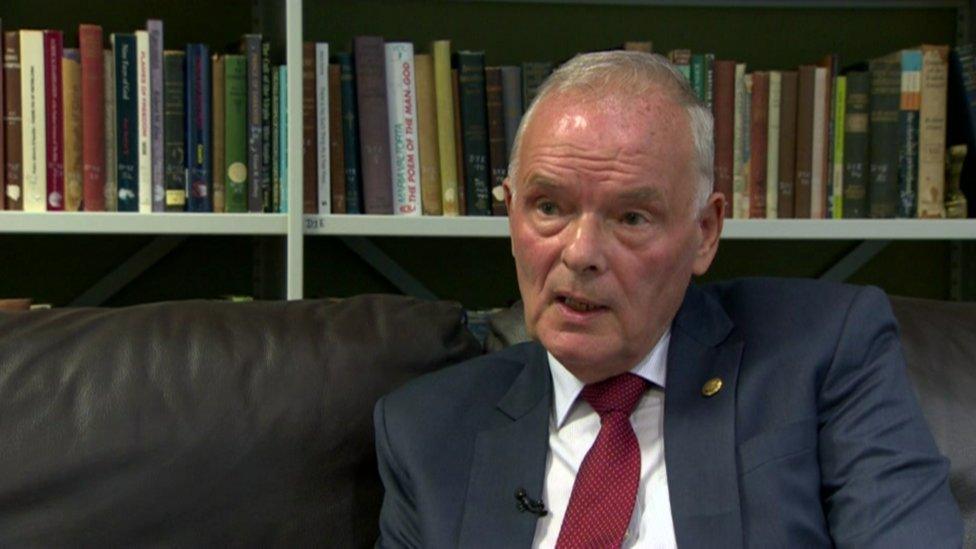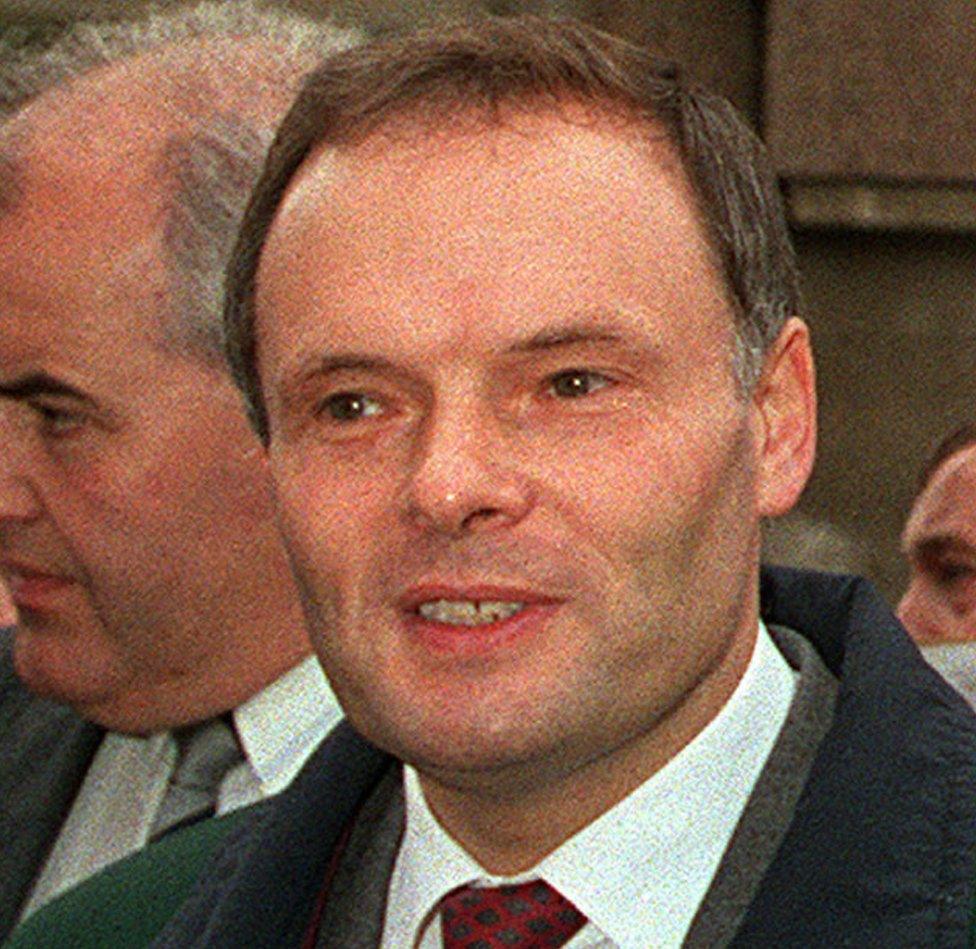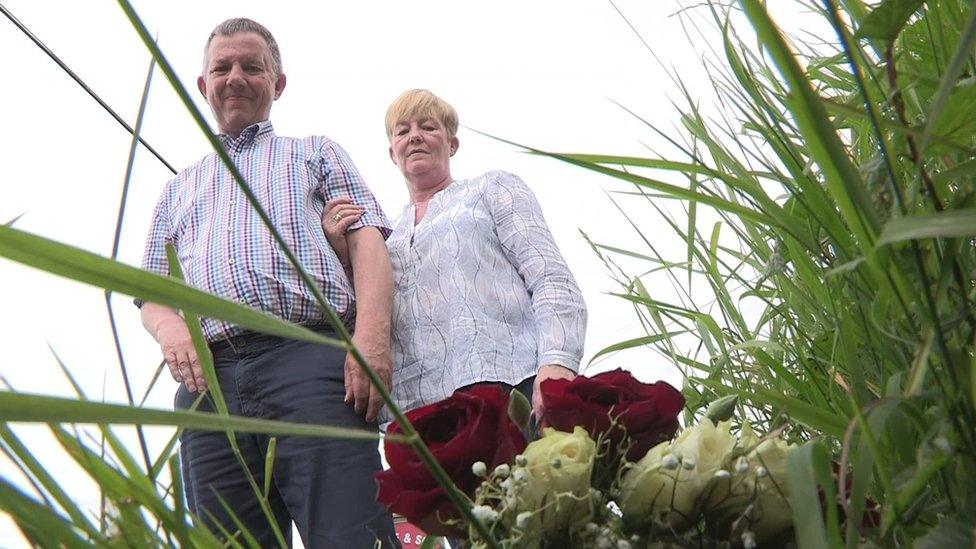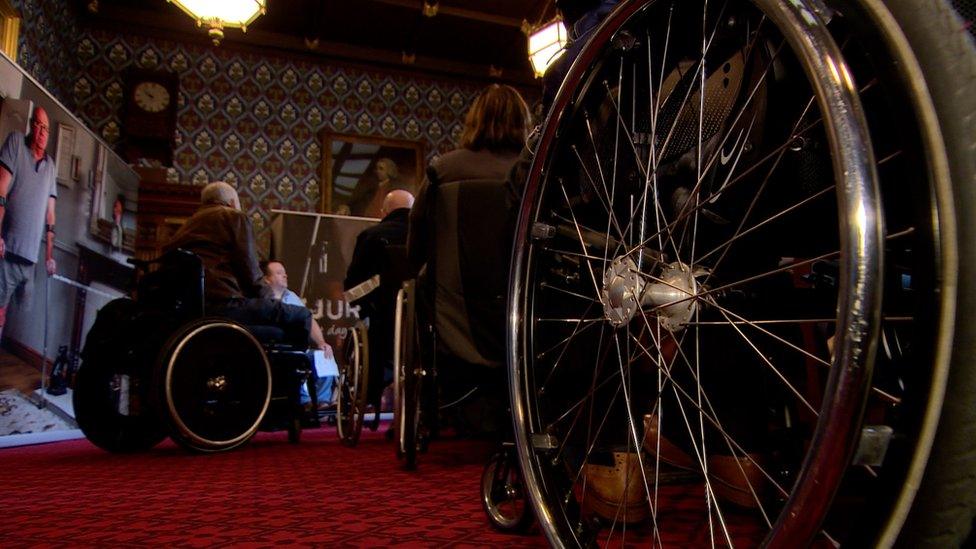McIlveen says all claims for Troubles compensation should be heard
- Published

David McIlveen said he recognised compensation was a "sensitive issue"
A Free Presbyterian minister has said he would not necessarily object to Troubles-related compensation for ex-paramilitaries who needed support.
Rev David McIlveen told the BBC's Sunday Sequence programme he recognised it was a "sensitive issue".
However, he added that every person should be assessed anonymously and "according to their specific needs".
"It wouldn't be the classification of perpetrator or the classification of the innocent," he said.
"It would be the classification of those who have specific needs - that would be the criteria.
"Every individual who is suffering should be able to present their need in a manner that's personal to them."
During the interview, Rev McIlveen stressed he "would not condone the actions of violent or murderous people".
However, he added: "We're in a situation now where there are so many who are suffering from the legacy of the past.
"I would suggest that there would be very few who would be in the category that would be viewed as suspect."
'Golden period'
The prominent minister, who was friends with the late Rev Ian Paisley, said he had originally voted against the Good Friday Agreement, "not because I voted against peace, but I was concerned about the process and wondered if process would somehow suffocate the benefits and the blessings of peace".
However, when he witnessed Rev Paisley's friendship with Sinn Féin's former deputy first minister Martin McGuinness, his mind was changed.

Rev David McIlveen was friends with the late Rev Ian Paisley

"I felt like someone who was awakening out of a dream and I thought this is such a wonderful opportunity, a golden period," he said.
"But sadly, I just fear that has dimmed - it has been tarnished over the past few years."
'Got to move on'
He added that Northern Ireland was now "in danger of wasting the peace" and said people needed to come to terms with the past and move on.
"There are many people suffering as a result of the Troubles and we can't diminish that, but at the same time, we can't live in the past," he said.
"We've got to move on and to, in some way, compensate and encourage people to do that.
"Neither the state nor the church, nor any organisation has an unending reservoir of comfort.
"We can't provide all the answers to people. And people have got to evaluate what is most important to them."
Asked about the need for answers about what happened in the past, he said: "I'm not convinced in my own mind about the pursuit of truth.
"I just don't know how one defines that in terms of all the ingredients that might perhaps make up that final solution to that individual."
- Published17 July 2019

- Published27 June 2019

- Published13 August 2019
